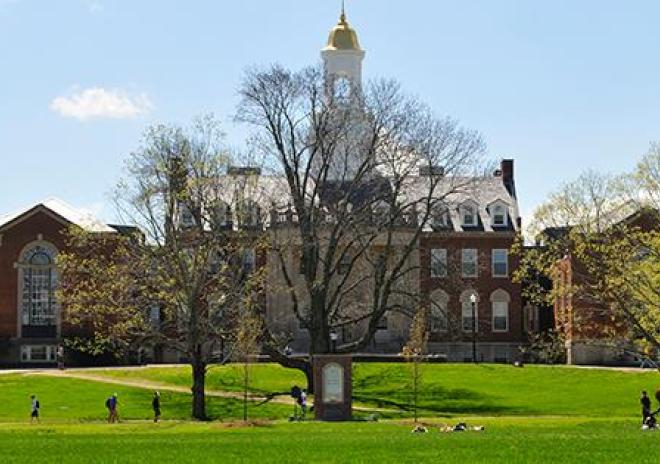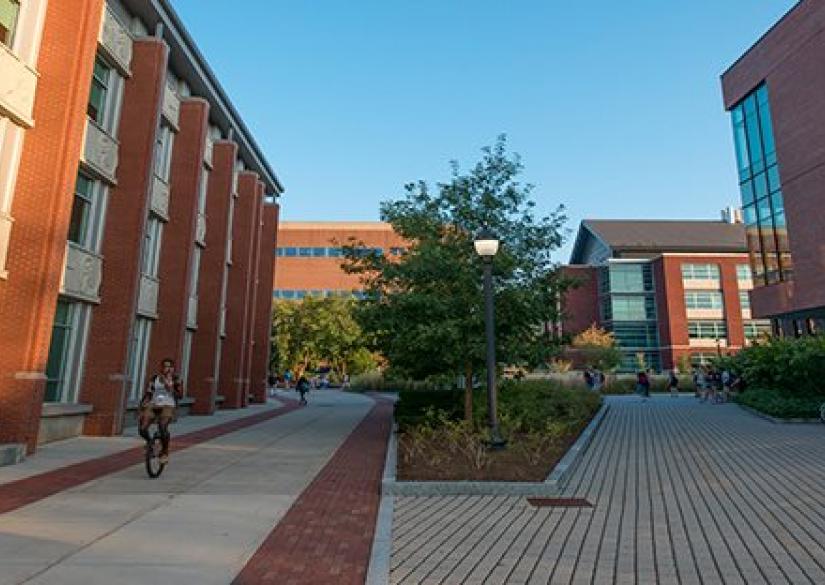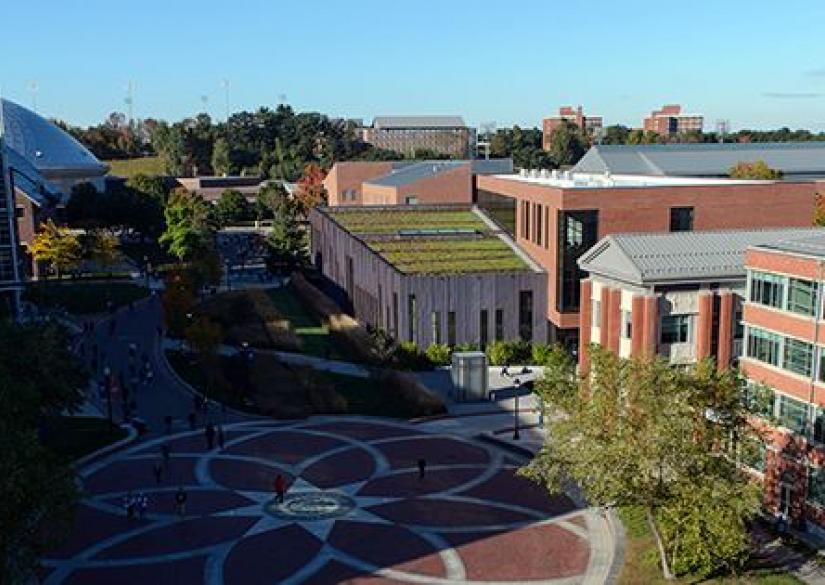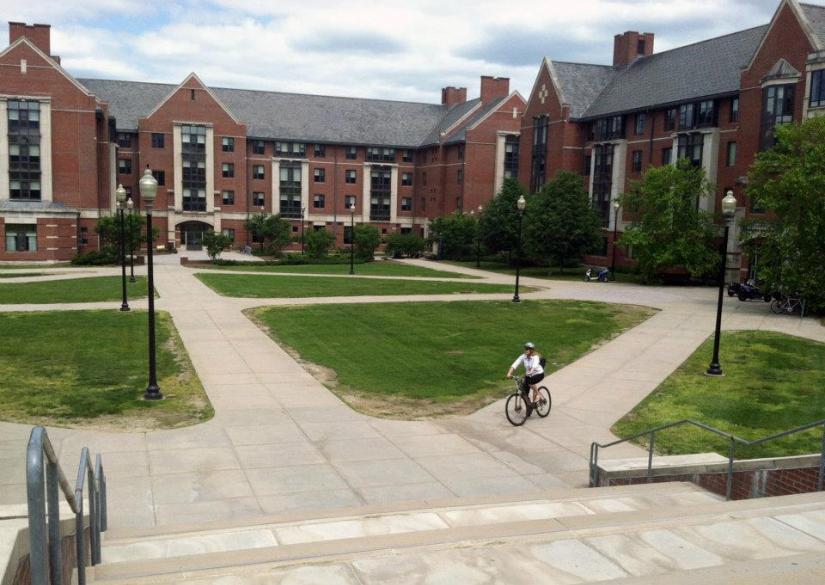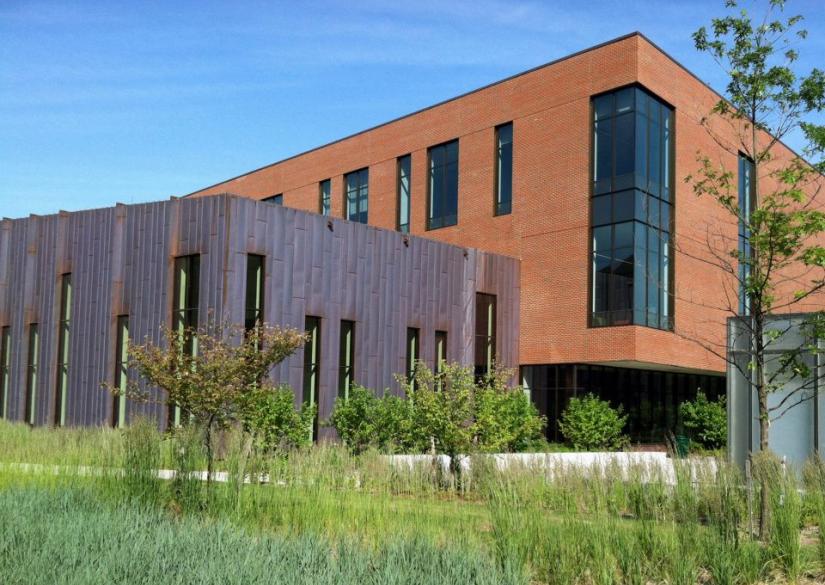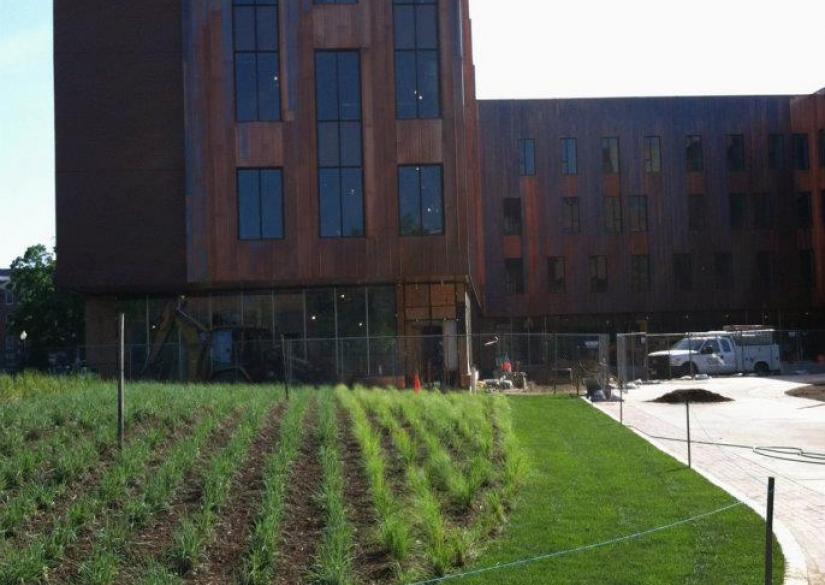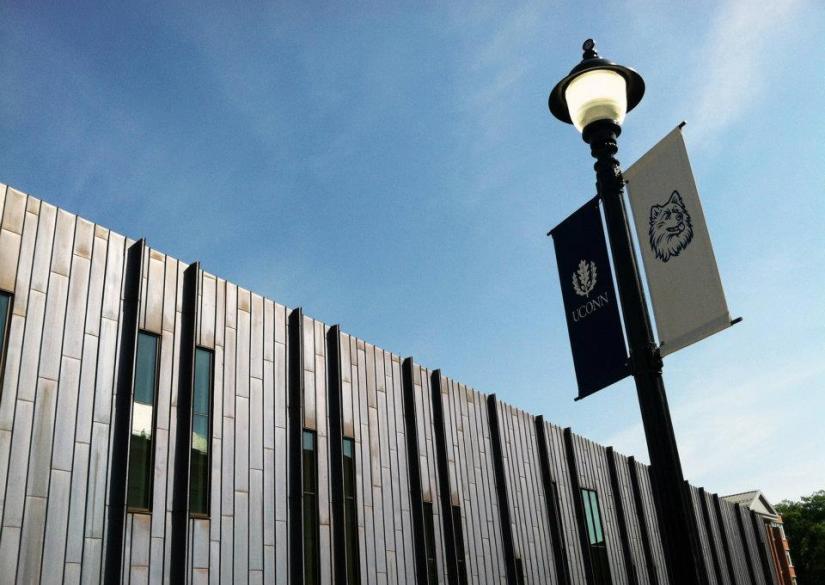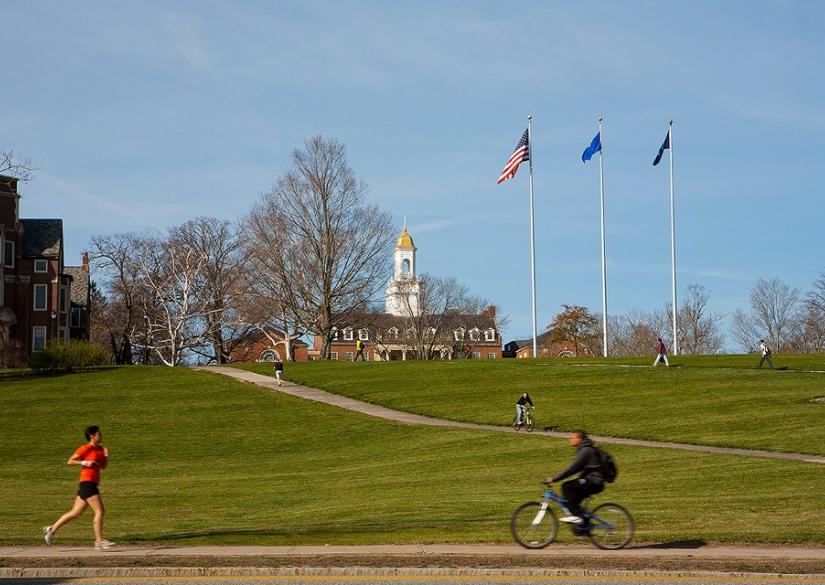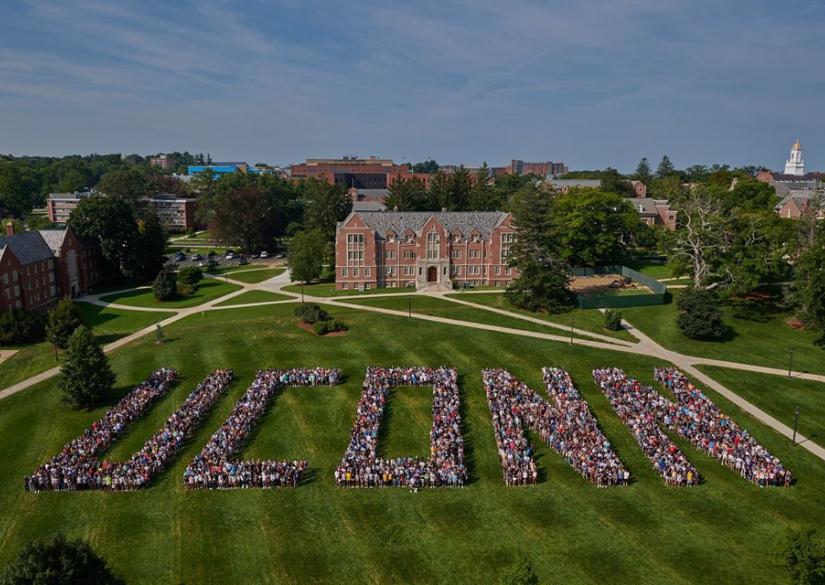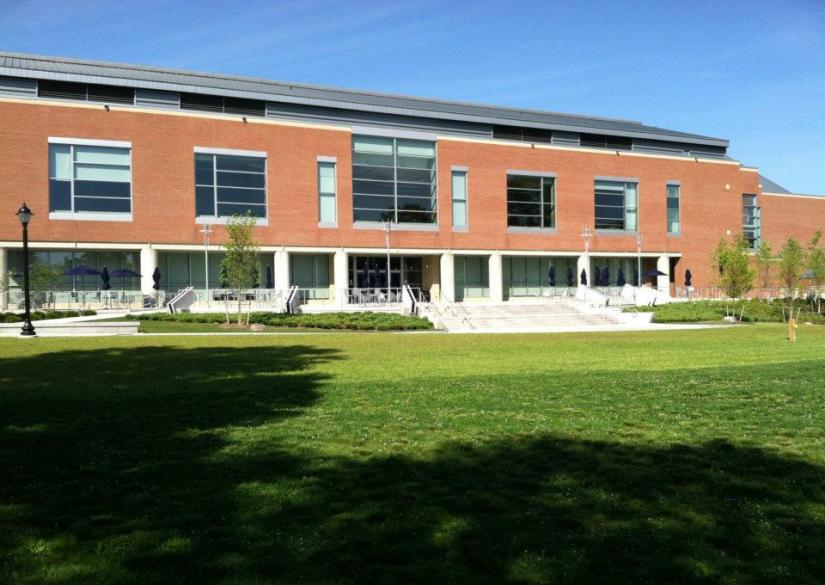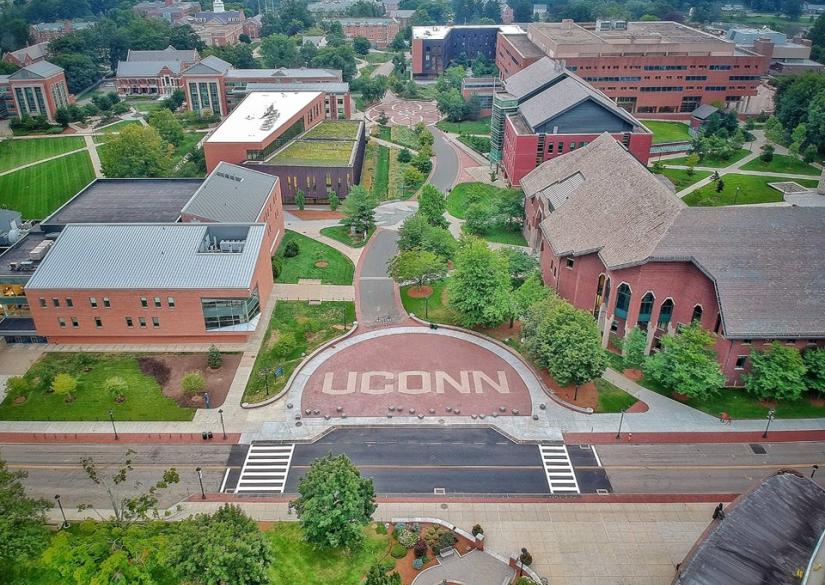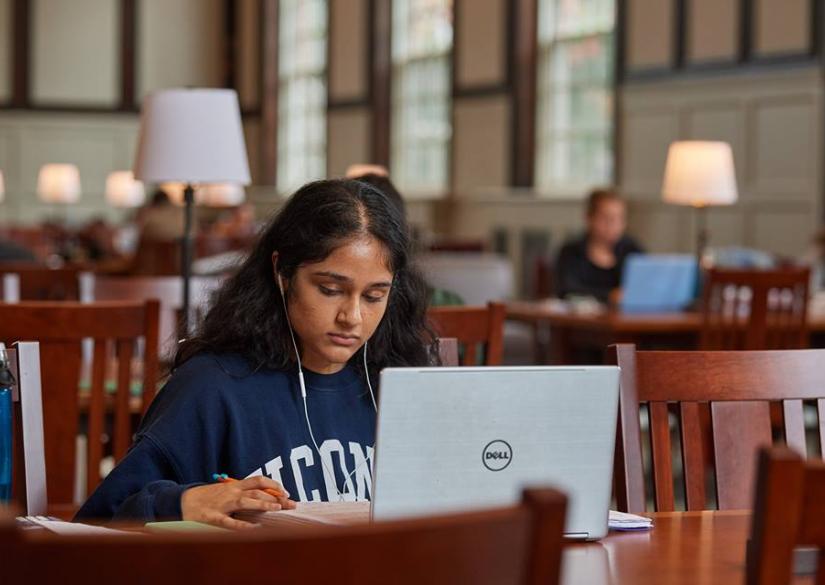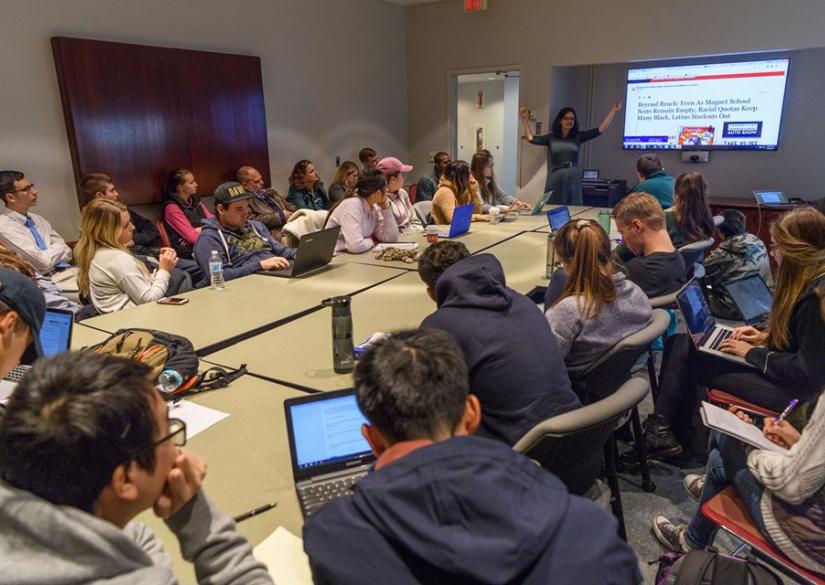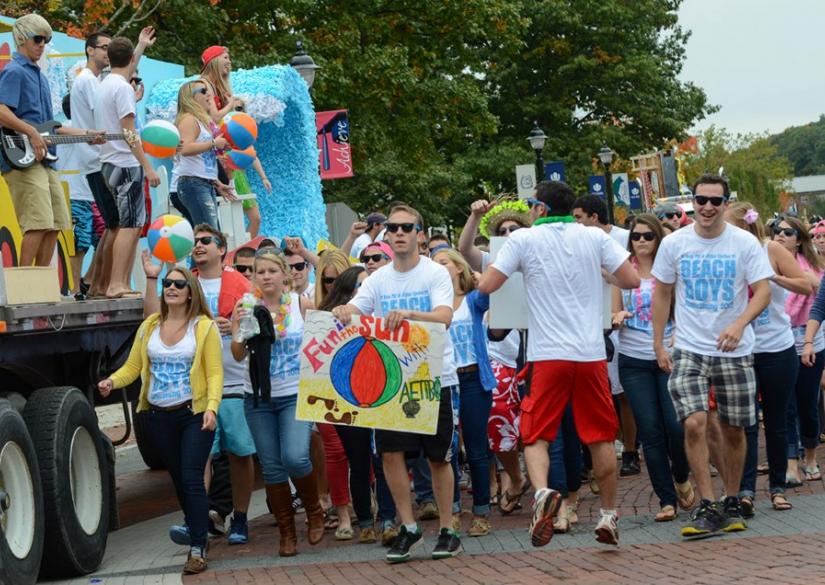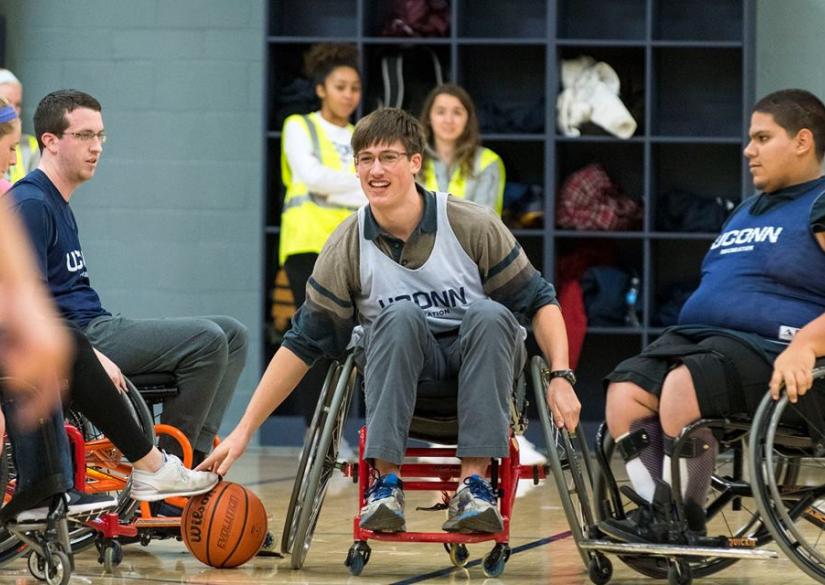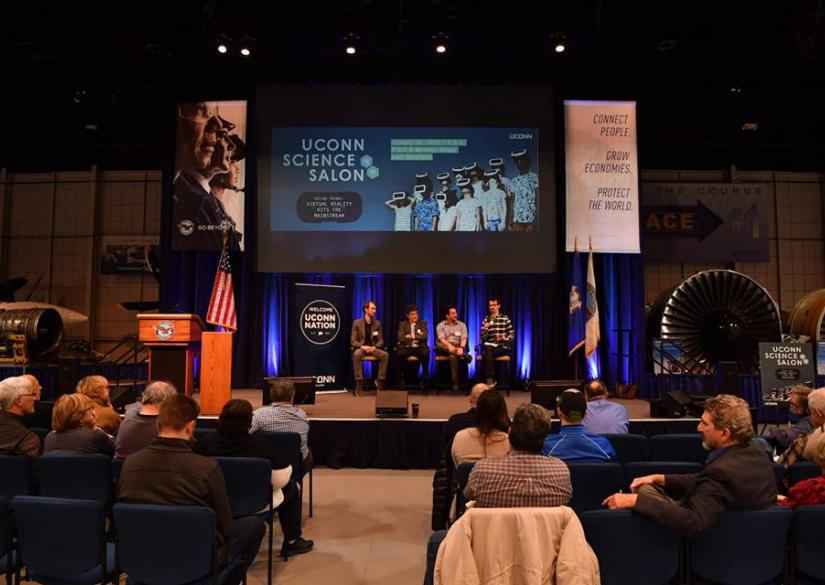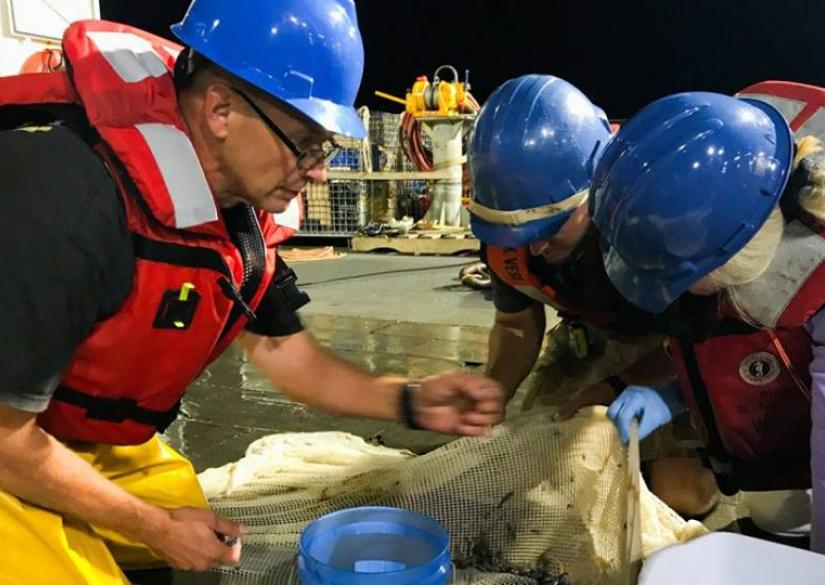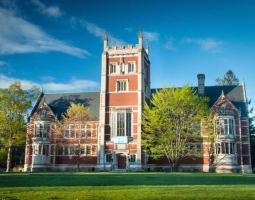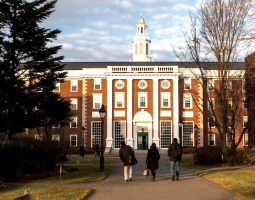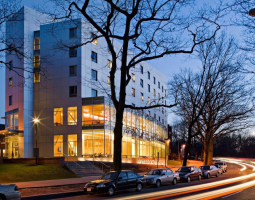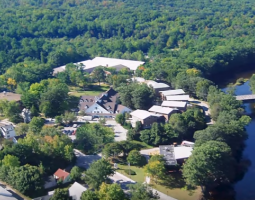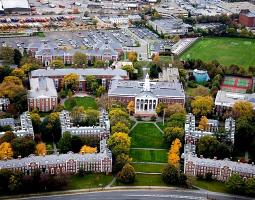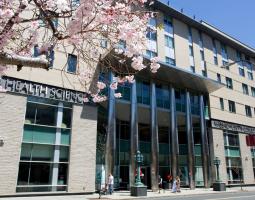University of Connecticut
Programs and prices, tuition fees in University of Connecticut
Undergraduate
- Tuition: about $ 36,466 per year.
Training can take place in absentia - online. Some specialties suggest the possibility of obtaining a dual profession. UConn's student research office will assist in individual research, scholarship and creative activities. List of core items:
- Architecture and construction
- Business and management
- Humanitarian sciences
- Natural Sciences
- Journalism and Social Sciences
- Engineering
- Art and Design
- Computer science
- Master of Business Administration, MBA
- Medicine and health
- Pedagogy
- Right
- Agriculture and Veterinary
- Tourism and hotel business.
Master's
- Tuition: about $ 15,000 per year.
There are special programs at the University of Connecticut, within which a curriculum has been developed that includes four years of undergraduate training in any of the bachelor’s degree programs along with additional admission to the School of Dental Medicine, Neag School of Education, Law School, Medical School or School of Pharmacy. In conclusion, you will receive both a bachelor's degree and a doctor of medicine, doctor of medicine, doctor of medicine, doctor of medicine or Pharm.D.
PhD Program
- Age – from 23 years old,
- The duration of training is from three years.
Studying in one of the doctoral programs will give students the opportunity to acquire research, teaching and practical skills of high quality, thanks to which they will be able to take a high position in their career. To date, UConn has several dozen doctoral specializations, including:
- Geological Sciences,
- Geography
- Health Promotion Sciences,
- Human development, family science,
- Engineering protection of the environment,
- Pedagogical Psychology,
- Economics
- Ecology, evolutionary biology,
- Linguistics
- Materials Science, Engineering,
- Mathematics
- Oceanography
- Philosophy
- Political science
- Public health.
Description of University of Connecticut
- Year of foundation: 1881
- Location: Connecticut, USA
- Age: from 18 years old
- Type: State University
- Number of students: about 30,000
- Language learning: English.
The University of Connecticut or University of Connecticut (UConn) is an institution of higher education in America located in Connecticut. The university’s main campus is in Storrs, just forty-five kilometers east of the state capital Hartford. Campus Storrs has five regional offices:
- Waterbury
- Avery Point (in Groton): US Coast Guard Research Center
- Stamford
- Hartford: Faculty of Law and Social Work + Scientific and Research Divisions of the School of Business
- Pharmington Medical and Dental Schools.
Education at all academic levels and obtaining scientific degrees is carried out according to the American tradition in colleges and schools of the humanities and natural sciences, agriculture and natural resources, pedagogy, medicine, nursing care, management, engineering. The University of Connecticut is one of the twenty best state universities in the US thanks to its cutting-edge research, academic victories and initiatives that promote science. UConn was the second American university invited to the elite network of Universitas 21.
Famous UConn alumni include American physicist, Nobel laureate in physics David Morris Lee, American musician Mobi, four players of the IBA team, professional basketball players, writers, actors, former Turkish Prime Minister Tansu Chiller.
Educational process
Staff offer a wide range of additional opportunities to help students succeed in both academics and personal goals. Specialist departments are available to provide additional subject classes, career advice, support in research and thesis writing, internship search and other issues.
Faculties and colleges
Programs are taught on the basis of several scientific faculties-colleges:
- Agriculture, Natural Resources, Healthcare,
- Business
- Stomatology
- Engineering
- Fine arts
- Higher school
- Jurisprudence
- Liberal arts, sciences,
- Medicine
- Education
- Nursing,
- Pharmacy
- Social work.
Scientific achievements
More than 2000 highly qualified researchers work in the research centers at UConn: by attracting undergraduate, graduate and doctoral students, they strive to expand opportunities and improve the quality of life of the global community. Some areas that currently underpin local research are:
- Treatment of the leading causes of death and disability in the U.S., including cancer, obesity, Alzheimer's disease, and substance abuse,
- Improvement of physical, cognitive functions in the aging process,
- Nuclear magnetic resonance technology for the diagnosis of various diseases, including cardiovascular disease, cancer and chronic kidney disease,
- Expanding understanding of autism,
- Understanding the neural mechanisms of language and reading, including in dyslexia,
- The process of language acquisition by deaf children,
- The impact of stress during pregnancy,
- Psychosomatic and bodily interventions to improve emotional well-being.
Things to know about
On the main campus, there is a statue of the UConn mascot, a husky dog named Jonathan. One of the traditions is associated with it, according to which students, worried before exams and in need of luck, rub the nose of a stone dog.
Accommodation, meals, prices
The University of Connecticut is a major institution of higher education, in which about 8% of foreigners study, so there is a dormitory on campus with 11,000 students.
Campus accommodation options include hostels, suites and apartments. Residential areas are equipped with volleyball courts, Wi-Fi, free laundry, games and training rooms, recreation areas. The rooms have a bed, desk, chair, mirror, dresser and wardrobe. Students can choose to live in one of the 19 learning communities that share common interests.
Young people living on campus have unlimited access to dining rooms near the dormitories during working hours starting at 7 am. Buffet offers a number of cafes seven days a week.
Activities University of Connecticut
UConn offers more than 620 student clubs and organizations: from aerobics classes and the 3D Printing Club to the Student Film Organization and the American Institute of Civil Engineers; In addition, the campus is home to museums, galleries and theaters. The university encourages sports activities: from club sports to student recreation center and well-known NCAA Division I teams.
Advantages
- More than 100 research centers and institutes serve the university in the field of teaching, research, propaganda
- The opportunity to participate in student exchange programs
- As a Carnegie Foundation's research university, in recent years, it has been ranked among the top five best universities in the world by GreenMetric IU thanks to its internationally recognized energy management, sustainable development scholarships and the proportion of green spaces on campus
- Forbes Magazine ranked the University in 30th place among 124 national state universities that were marked as the “Best American Colleges” in 2012
- Included in the top 5% of the best universities in the world.
Facilities and equipment at University of Connecticut
UConn's main campus is located in the heart of downtown Storrs, halfway between New York City and Boston. The university's rich, diverse, and inclusive community is supported by more than 700 clubs and organizations, 24 NCAA Division I athletic teams, seven cultural centers and programs, five theaters, and three museums. The learning grounds boast an extensive library, which ranks first among the state's university libraries, housing not only literary works and scientific resources, but also collections on music and even pharmacy.
Since the main campus is located in a rural area, it has facilities that allow it to be practically self-sufficient. All heating on campus is steam, where possible, sidewalks have been laid over the underground connections to keep snow out. In 2005, a cogeneration plant was put into operation, which generates most of the electricity for the campus and uses waste steam for the campus' central heating system.
UConn's four regional campuses are in Avery Point, Hartford, Stamford, and Waterbury. Each of the academic sites has all the necessary infrastructure for the educational, sports, creative and social development of students: specialized laboratories and studios, computer and lecture halls, self-study and additional classes, sports facilities. All campuses have residential buildings, medical centers, administrative offices.
Admission dates and extra charges
Part of the cost of training can be reimbursed due to financial support from the university.
- University student fees - $ 3428
- Accommodation on campus - $ 7238
- Food - $ 6020.
Enrolment process
The admissions committee waits for the completed application, the application fee paid, and the required documents, after which it schedules an interview and possible tests. Applicants who have passed the introduction and verification stage receive an official invitation to enroll and assistance in obtaining a US visa.
Perspectives
According to the UConn Career Development Center, 90% of the Class of 2022 either got a full-time job by the end of the calendar year or continued their graduate studies during the same period. The average starting salary of a graduate is $55,830 .
The university cooperates with local organizations, thanks to which more than 700 companies actively recruit students from among UConn students every year.
Entry requirements, how to apply, what is required to enrol
- In addition to the exam grades, you must provide information about your previous progress in order to enter the University of Connecticut.
- The competition for one seat is about 2 people.
- The academic year is divided into two semesters.
Scholarships University of Connecticut
More than 60% of UConn's undergraduate students receive assistance in the form of grants and scholarships. Basically, scholarships are awarded on the basis of academic merit, grants are awarded according to special criteria. Students can also take advantage of financial aid, which is determined by preferential criteria, or a work-study program.
Literature and references
-
University of Connecticut — Wiki
-
University of Connecticut (Uconn) - Profile, Rankings — U.S. News & World Report
-
University of Connecticut — Niche
-
University of Connecticut : Rankings, Fees & Courses Details — Top Universities
-
78 University of Connecticut — Forbes
-
University of Connecticut — World University Rankings THE
-
University of Connecticut | Research, Education, Innovation — Britannica
-
University of Connecticut — Data USA
Institution on the map
Residence permits, citizenship and other services
- Guardianship services during the studies
- Student supervision
Review about University of Connecticut
Recommendations on when to apply
| Language courses, schools and children's language camps | Primary and secondary education - private schools | Preparation programmes for entering universities - higher education | Higher education (after completing accredited programs A-level, IB, High School) - Bachelor, Master, MBA |
| - we recommend to apply 6-9 months before the start of the course (some camps and schools offer discounts for early booking or for lengthy study programs) - there are some very popular and high demand children's camps, where the applications need to be submitted 1 year in advance (in particular Switzerland , Great Britain , USA , Canada , Austria) | - we recommend to apply one year before the start of the training program, - some schools have a specific time frame (September-November - please specify an individual school) - some schools require tests in several stages (UKISET, internal tests of the school: English, mathematics, logics, subjects, interview, some require a personal visit) | - we recommend to apply one year before the start of the program, - for Foundation and Pathway programs, IELTS and TOEFL certificates are usually required, respectively | - recommended submission one year before the start of the program, - the deadline normally closes in January, for TOP HEIs and, as a rule, in March in other universities - for a bachelor, a Foundation or Pathway preparatory program a completed A-level, IB, High School + IELTS / TOEFL are required - for Masters you need a graduated higher education, in some cases you need a pre-Masters program - MBA requires completed higher education, work experience preferably at least 2-3 years, etc. |


